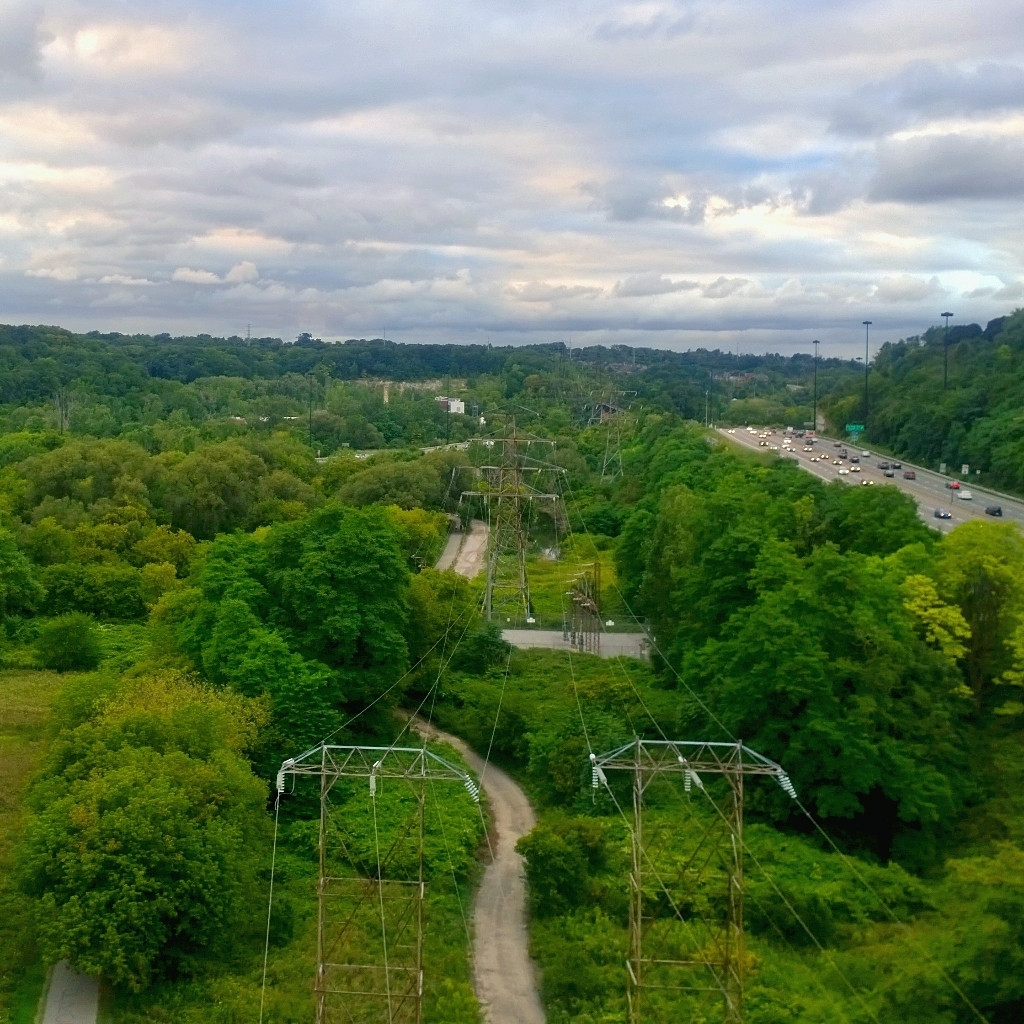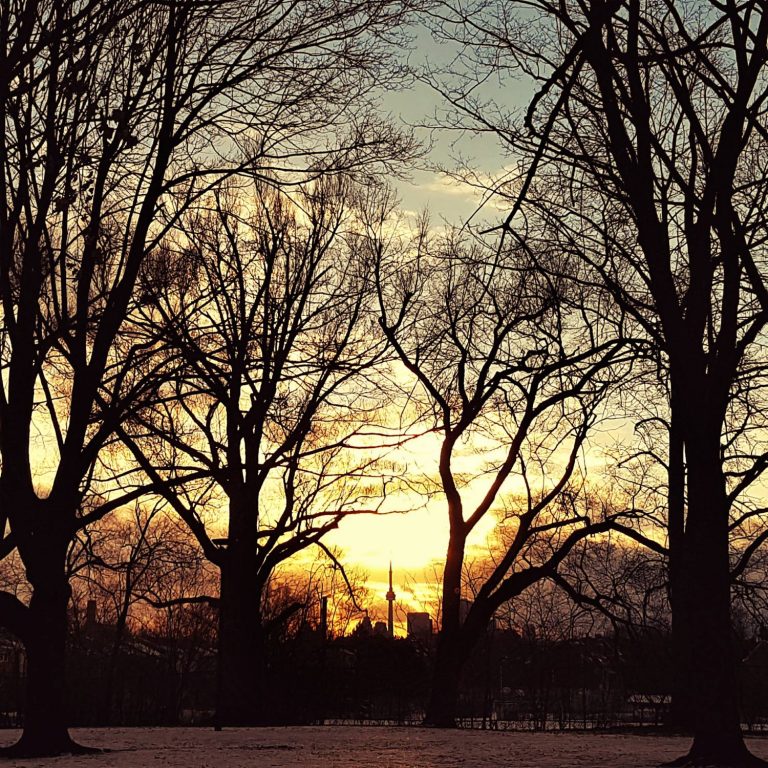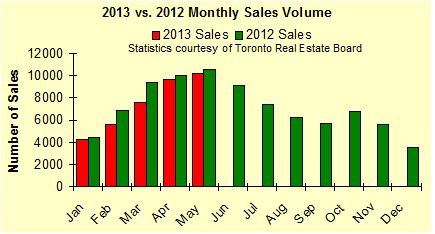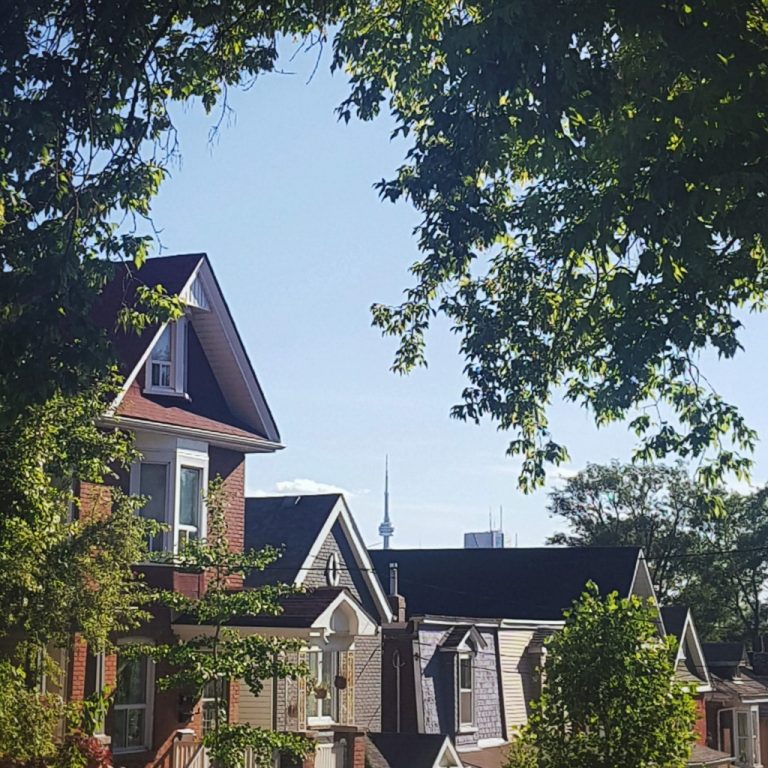Toronto Income Property Newsletter – July 2010
Happy Canada Day everybody! I hope all of you have been enjoying the World Cup as much as I have. Since my beloved England, and my second favourite team USA are now out, it’s Dutch all the way! What a week it has been in our city – between the soccer and the G20 summit which brought quite a bit of excitement with it. I give my appreciation to Toronto’s finest, who ensured that no one really got hurt, and mitigated the situation quite well in my opinion. I hope we can put this all behind us now.
Remember HST kicks in today. I’d also like to wish everyone a Happy Pride Day and hope you all enjoy the rest of the summer.
*
We are at the halfway point of 2010 so I wanted to present my six month wrap-up of the year so far. The year started with a bang, picking up right where 2009 left off. Multiple offers and price wars were the norm. In the first three months of this year, I personally was involved in over two dozen multiple offer situations. Quality duplexes and triplexes in top neighbourhoods were all selling very quickly, most of the time for over the asking price. It really didn’t matter where a property was priced as they just kept getting scooped. Take a look at some of these sales:
114 Dovercourt (4 units): Asking: $1,049,000 Sold: $1,225,000
27 Rosemount (4 units): Asking $899,000 Sold: $1,050,000
55 Burnaby (4 units): Asking $995,000 Sold: $1048,000
35 Callendar (3 units): Asking $679,00 Sold: $806,000
125 Borden (Duplex): Asking $499,000 Sold $652,000
Now these were extreme examples of properties going way over asking, but there were tons more that sold for 5 to 10% over the asking price. This continued right up until the end of May. As we got into June we finallly saw the income property market start to level off. There was a lot of conjecture that this kind of market couldn’t sustain itself and eventually it would have to slow down. This naturally lead to talk of bubbles and grand price decreases.
I don’t think that there will be dramatic price decreases (at least not with quality income properties in the core), but prices should stop going up. We ought to see some sort of leveling off as demand gets a little more in sync with the available inventory of properties. I expect that the “quietness” that we are experiencing now will continue until Labour Day and then we ought to see market activity start to bustle again. Will it be like it was at the beginning of the year? Let’s hope not as a balanced market for buyers and sellers is always the most desirable market to be working in.
Cutting a property into two, or “duplexing” it, is an excellent way to help offset your home’s carrying costs. This information comes courtesy of www.landlordselfhelp.com, an excellent website based in Toronto, for both landlords and tenants.
1. What defines a second suite?
A second suite is a self-contained, rental apartment in a single or semi-detached house. In some areas of Toronto, second suites have existed for many years, providing tenants with affordable rental accommodation in neighbourhood settings while generating rental income for homeowners. An estimated 20% of all rental housing in Toronto is found in private homes as second suites.
Many second suites are basement apartments, but they can be installed on any floor of the house including the attic. They have also been called granny flats, accessory apartments and in-law suites.
2. Are second suites legal?
Toronto Council expects that more affordable rental housing can be created cost effectively by allowing homeowners across the city to create or legalize second suites. To do this, the city passed a zoning bylaw allowing a second suite in all single and semi-detached houses, with some conditions.
Second suites have been permitted in parts of Toronto for some time. A provincial law also allowed homeowners to create a second unit in their homes from July 14, 1994 until November 16, 1995 when that law was repealed. Suites created during that period were permitted provided they met fire, building and housing safety standards.
3. What are the conditions that must be met to have a second suite?
While the second suite zoning bylaws permits second suites in all single and semi-detached houses, certain conditions apply. Some of these conditions are that:
• your second suite must be self-contained (including a separate entrance, kitchen and bathroom)
• your house must be at least five years old
• the floor area of the second suite must be less than the rest of your house
• you must have at least two parking spaces (except in parts of the former City of Toronto where only one parking space is required)
• you cannot make significant exterior alterations to the street frontage of your house.
Note: The new bylaw refers to self-contained suites only. If you rent a room in a house or a flat with a shared entrance, this bylaw does not apply to you.
All second suites must comply with fire, building and housing safety standards based on the Building Code, city bylaws and the Fire Code. These may include, for example:
• minimum sizes for the rooms that make up the second suite
• minimum ceiling height for basement or attic suites
• fire separations between the second suite and the rest of your house
• exits from your second suite
• smoke alarms and carbon monoxide detectors
• electrical safety
You will require a building permit and may need other permits to create your suite. Ultimately, you as the owner are responsible for taking all the steps required to ensure your second suite is legal. Toronto has produced an information kit that may help you. The kit provides easy-to-read information on how to create a second suite that meets all fire, building, and housing safety standards required by law.
4. What if there already is a second suite in my house?
The second suite zoning bylaw allows for many more second suites as long as they comply with fire, building and housing safety standards. If you already have a second suite, the first step is to call Fire Services. They will let you know what steps to take and will then inspect your home. The cost of inspection and a letter of clearance confirming your suite is safe is $150 (see below for information on where to call).
If, as a result of a fire inspection, you learn that you need to do some work on your second suite, you may need a building permit. Again, Toronto’s information kit may help you.
5. What do I need to know to be a landlord?
If you are considering putting a second suite in your home, you must consider the change in your lifestyle, the expense and the commitment you must make when becoming a landlord. It is essential that you research the legal obligations you are taking and have a clear understanding of your rights and responsibilities.
Once you become a landlord, your relationship with the tenant is governed by the Tenant Protection Act (TPA). Tenants have specific rights. Most importantly they have “security of tenure,” which means that a tenancy agreement can only be terminated under specific circumstances. To evict your tenant, you must have a valid reason as defined in the TPA and follow a specific procedure.
When you rent a portion of your house, you must respect your tenant’s right to enjoy his or her home. Tenants have the right to have overnight guests, cook foods they enjoy, come and go as they please and have a pet as long as these activities don’t conflict with your right to the reasonable enjoyment of your home.
6. Are there any tax implications?
It is anticipated that the property tax impacts of second suites will, for the most part, be minimal. Under Current Value Assessment (CVA), the assessed value of a home is based on its market value. According to the Ontario Provincial Assessment Corporation, the agency responsible for property assessment, a property’s CVA does not usually go up unless there is an increase in the total property value of at least $10,000 or 5%.
A typical second suite increases the value of a home by only 2%-5%, depending on the neighbourhood. Therefore, most second suites do not add enough value to meet this threshold. A major exception to this would be a second suite that is created with a building addition. This could significantly affect the total value and result in a property being reassessed.
If you have any further questions about creating residential apartments, please call me or any of our Plex sales representatives. You may also want to call your lawyer. It is always a good idea to get professional advice prior to starting a major construction project.





